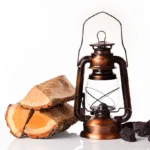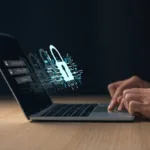DAO Governance:

The concept of decentralized autonomous organizations (DAOs) has captured the imagination of many, but their governance structure can be puzzling. How do these organisations function without a central authority? This blog post dives into the fascinating world of DAO governance, shedding light on how communities make decisions and the potential benefits it offers.
Understanding DAOs: A Community-Driven Powerhouse
You can imagine a group of people governed by each other, not by a single person. That’s the essence of a DAO. These organisations leverage blockchain technology to create transparent, community-driven systems for decision-making and resource allocation.
Here are the key characteristics of DAOs:
1. Community-Owned: Token holders operate and own DAOs, participating in decision-making and sharing ownership.
2. Smart Contract-Based: Rules and operations are governed by self-executing code stored on a blockchain, ensuring transparency and immutability.
3. Decentralised Decision-Making: Power is distributed among token holders, who vote on proposals using a secure and transparent process.
Read More: How Oversight Models Unlock Blockchain Potential
Demystifying DAO Governance: How It Works

Here’s a breakdown of the key elements of DAO governance:
1. Proposal Submission: Anyone within the DAO community can submit proposals for changes to the organisation, including modifications to the code, treasury allocations, and new initiatives.
2. Token Voting: Token holders have voting rights proportional to their token holdings (though some DAOs explore alternative voting structures).
3. Voting Mechanisms: Voting typically takes place on-chain, offering an immutable and transparent record of votes cast and outcomes.
4. Community Consensus: Proposals require a specific level of approval from token holders to pass and be implemented.
Unveiling the Benefits of DAO Governance:
1. Increased Transparency: All proposals and voting records are publicly viewable on the blockchain, fostering trust and accountability within the DAO community.
2. Enhanced Participation: Anyone with tokens can participate in the decision-making process, promoting democratic and inclusive governance.
3. Reduced Reliance on Central Authority: DAO governance removes the need for a single leader or board, promoting decentralisation and community ownership.
Exploring Different DAO Models:
It’s important to note that not all DAOs operate in the same way. Here are some variations in DAO governance models:
1. Voting Thresholds: The percentage of tokens required for a proposal to pass can vary depending on the DAO’s chosen governance model.
2. Delegated Voting: Some DAOs allow token holders to delegate their voting rights to other members, potentially increasing efficiency.
3. Reputation-Based Voting: Some DAOs are experimenting with reputation-based systems that influence voting power based on factors such as contributions from the community.
Read More: How Bitcoin Technology Makes Micropayments Possible
Real-World Examples of DAO Governance in Action:

DAOs are being used in various ways, bringing the power of community-driven governance to different industries.
1. Decentralised Finance (DeFi): DAOs are used to govern lending protocols, manage liquidity pools, and make investment decisions collectively.
2. Non-Fungible Tokens (NFTs): DAO-governed marketplaces and communities are emerging for NFTs, allowing decentralised ownership and decision-making for digital assets.
3. Social Media Platforms: DAO-powered social media platforms aim to empower users and give them control over platform rules and content moderation.
Challenges and Considerations for DAO Governance
While DAO governance offers numerous advantages, it’s essential to acknowledge the challenges associated with this model:
1. Scalability: As the number of members in a DAO increases, it can become challenging to maintain efficient and inclusive decision-making processes.
2. Security: DAOs are susceptible to security vulnerabilities, as malicious actors may attempt to exploit voting mechanisms or manipulate proposals for personal gain.
3. Voter apathy: Not all members may actively participate in governance, potentially leading to situations where a small subset of individuals control decision-making.
Addressing these challenges is crucial for the long-term sustainability and success of DAOs. Continuous development and refinement of governance frameworks are necessary to ensure inclusivity, security, and efficient decision-making as these innovative organisations continue to evolve.
The Future of DAO Governance: A Collaborative Journey

The world of DAO governance is still evolving, with new models and applications emerging constantly. Here are some key trends to watch:
1. Scalability Solutions: As DAOs attract more members, finding ways to scale governance processes while maintaining efficiency and inclusivity is crucial.
2. Hybrid Models: Blending elements of on-chain and off-chain governance might offer solutions for specific use cases, requiring careful consideration in balancing decentralisation with practical implementation.
3. Evolving Regulations: As DAOs gain traction, regulatory frameworks are likely to adapt, and effective collaboration between DAOs and regulators will be essential.
Read More: How to Balance Blockchain Security and Speed
Unlocking the Potential: Embracing the Power of Community Governance
Understanding DAO governance equips you to:
1. Participate in DAOs: If you’re interested in a specific DAO, researching its governance structure will help you understand your rights and responsibilities as a member.
2. Contribute to the Future: Engaging in discussions, proposing ideas, and voting on proposals are important ways to contribute to the growth and direction of DAOs you care about.
3. Explore New Possibilities: DAOs represent a paradigm shift in organisational structures. Understanding their governance models opens doors to exploring innovative solutions in various fields.
Demystifying the complexity and highlighting the benefits of DAO governance opens doors for a future where communities can collaborate and make decisions transparently, collectively shaping the landscape of decentralised organisations.
Conclusion: DAO Governance: A Powerful Tool for Building a More Equitable Future
DAO governance presents a compelling alternative to traditional governance models, empowering communities to collectively shape the direction of decentralised projects. As technology matures and innovations emerge, DAO governance has the potential to revolutionise how we organise and govern projects across various sectors, fostering a more inclusive, transparent, and community-driven future.










